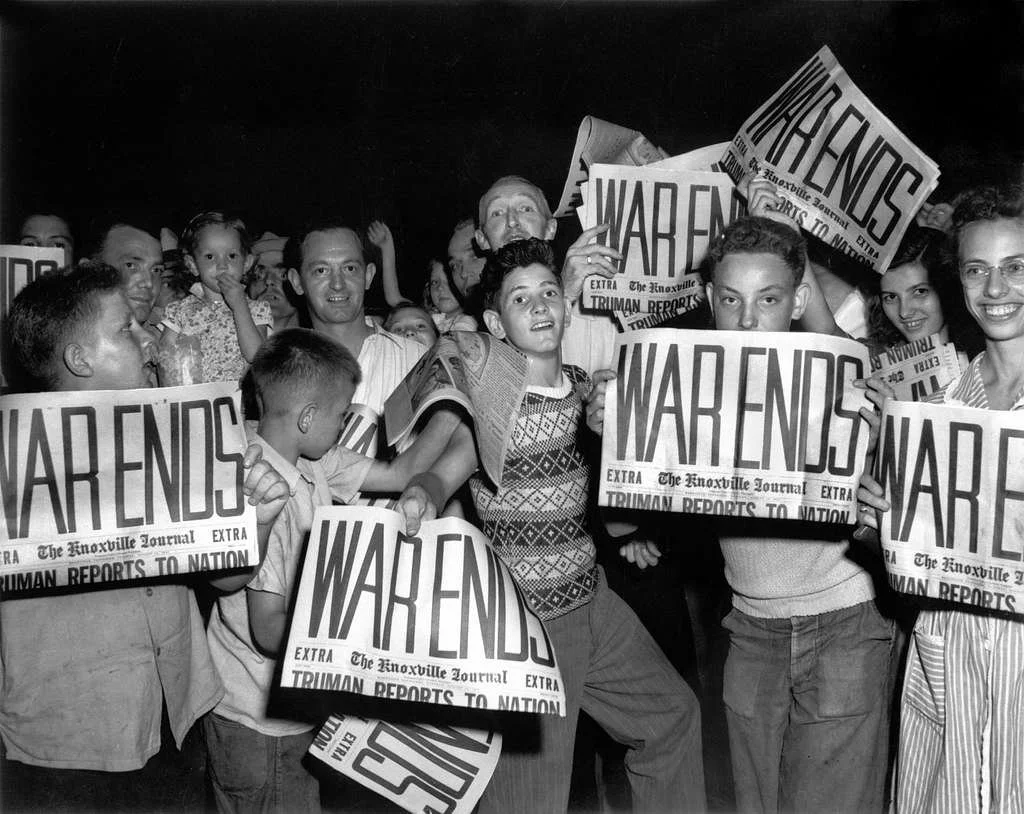By Nico Docherty, Project Manager
This week marks the 80th anniversary of V-J Day, when Japan’s surrender was signed aboard the USS Missouri. It was the moment when many years of bitter fighting across the world officially came to an end. The Second World War was a conflict of unprecedented horror and destruction, but V-J marked a moment of relief and - with the world once again able to look toward a peaceful future - quiet optimism.
With the Second World War now drifting from living memory, it is more important than ever to preserve the experiences of those who were caught up in the monumental events of those years. Family History Films has been honored over the years to tell many stories of client’s parents and grandparents involved in the Asia-Pacific Theater, from U.S. marines that saw bitter fighting on Pacific islands to Indian pilots and soldiers that battled Japanese forces in South-East Asia. A recent project even covered the efforts of a man deeply involved in the Manhattan Project.
V-J Day celebrations
With the synchronicity that curiously crops up in this line of work, 2025 has been a bumper year for Family History Films projects and trips concerning the Asia-Pacific Theater. Below are some examples of the fascinating stories we’ve recently been able to bring to life for our clients.
In May I was filming with a client’s family in Hong Kong, an amazing region with an abundantly rich history. It was fascinating to hear their stories of the many ways the war affected their family. It is often forgotten in the West that the fighting in Asia started much earlier, with hostilities between China and Japan commencing in 1931. Our client’s grandfather was forced early in the conflict to flee China, eventually making it to Mexico where he spent many years in exile. Another branch of the family worked for the Salvation Army in Hong Kong. When the Japanese invaded the territory in 1941, they likewise fled, in this instance to the relative safety of Sichuan in Western China. Upon returning to Hong Kong after Japan’s surrender, their charitable work helped rebuild a bruised city.
Salvation Army HQ in the postwar years
The tearing apart of families is a familiar theme of the era, and while in Hong Kong I was able to visit a poignant location in the history of a separate client’s family. Their Massachusettsan grandfather had been working for an American company in Japan in the lead up to the war and was settled in Nagoya with his family, including our client’s mother. With tensions rising between Japan and America, the family were encouraged to return home, but the grandfather was relocated to Hong Kong. He was unable to make it out before the invasion, and was imprisoned at Stanley Internment Camp for the duration of the war. His diary records a sobering account of the ordeal but preserving it in our film ensured his struggles could be contextualised and appreciated by future generations.
The occupation of Hong Kong
Another ancestor whose story we recently told was that of an idealistic Pennsylvanian lawyer who, at the outbreak of war, signed up to the Red Cross. During the fighting in New Guinea and the Philippines, he oversaw the delivery of medicine and other supplies to troops operating in horrendous conditions. His work and his qualifications caught the eye of his superiors, and after V-J Day he was relocated to Japan and made responsible for defending some of the officers accused of committing war crimes. It was unglamorous but essential work. Our client’s grandfather helped ensure that the horrors of the war were prosecuted in a legal and fair manner, a riposte to the arbitrary tyranny that had just been defeated across the world.
Numerous war crimes trials were held after the war
These stories shine a light on the brutality of war but also the innate goodness that most ordinary people demonstrate in difficult times. By helping to preserve these stories, Family History Films has ensured future generations will not lose sight of their forebears’ quiet achievements. With V-J now 80 years behind us, it is an effort worth redoubling.
Older posts

































How reliving the past can preserve it for the future.